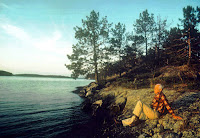Love is in the Listening
The following is an excerpt from my first book, Filled Up, Poured Out:
You and I were given two ears and one mouth. That’s because we’re supposed to listen twice as much as we speak; but talking and explaining come easier than hearing and understanding.
Why is it so hard to listen? Consider this: We speak at 100 to 150 words per minute. We are able to comprehend at 250 to 300 words per minute. We think at 600 words per minute. So, if you are a fast thinker (600 wpm) and the other person is a slow talker (100 wpm), you still have 500 words per minute left over for thinking about other stuff. For efficient folks, that’s a lot of wasted communication space. Therefore, the fast listener tends to zone out and think about a myriad of other things. Zoning out is evidenced by such responses: “Um hmm,” “Yes, dear,” “I don’t know,” and “Whatever.” Listening is hard work.
True listening is more than hearing the words. It’s processing those words and seeking to understand their depth and meaning. As Jim Elliot journaled, “Wherever you are, be all there." Margaret Wheatley said, “Listening is such a simple act. It requires us to be present, and that takes practice, but we don’t have to do anything else. We don’t have to advise, or coach, or sound wise. We just have to be willing to sit there and listen.”
“Momma, are you listening to me?” little Heidi wondered. “Um hmm,” the distracted mother replied. “No, Momma, I need you to listen with your eyes!”
Lately, my family has been making fun of my hearing loss. I make them repeat everything, and then accuse them of mumbling. It’s my price for listening to Bob Dylan through headphones as a teenager. Since I can’t hear as well these days, I’m trying to listen better.
Being hard of hearing is not nearly as bad as hard of listening.
Christians have a reputation of being hard of listening. As Rick Warren noted, “For some time now, the hands and feet of the body of Christ have been amputated, and we’ve been pretty much reduced to a big mouth.”
Sigurd Olson, the Northwoods naturalist, affectionately dubbed his wilderness cabin on northern Minnesota’s Burntside Lake, “Listening Point.” Sig explained, “I named this place Listening Point because only when one comes to listen, only when one is aware and still, can things be seen and heard.”
Can you imagine how rich our relationships would be if we approached them all as listening points?
Every person, after all, has a fascinating story. Dave Isay, the founder of StoryCorps, discovered this traveling across America in the daunting task of archiving the nation’s oral history. He recorded over ten thousand personal stories and concluded, “Listening is an act of love.”
Why is it so hard to listen? Consider this: We speak at 100 to 150 words per minute. We are able to comprehend at 250 to 300 words per minute. We think at 600 words per minute. So, if you are a fast thinker (600 wpm) and the other person is a slow talker (100 wpm), you still have 500 words per minute left over for thinking about other stuff. For efficient folks, that’s a lot of wasted communication space. Therefore, the fast listener tends to zone out and think about a myriad of other things. Zoning out is evidenced by such responses: “Um hmm,” “Yes, dear,” “I don’t know,” and “Whatever.” Listening is hard work.
True listening is more than hearing the words. It’s processing those words and seeking to understand their depth and meaning. As Jim Elliot journaled, “Wherever you are, be all there." Margaret Wheatley said, “Listening is such a simple act. It requires us to be present, and that takes practice, but we don’t have to do anything else. We don’t have to advise, or coach, or sound wise. We just have to be willing to sit there and listen.”
“Momma, are you listening to me?” little Heidi wondered. “Um hmm,” the distracted mother replied. “No, Momma, I need you to listen with your eyes!”
Lately, my family has been making fun of my hearing loss. I make them repeat everything, and then accuse them of mumbling. It’s my price for listening to Bob Dylan through headphones as a teenager. Since I can’t hear as well these days, I’m trying to listen better.
Being hard of hearing is not nearly as bad as hard of listening.
Christians have a reputation of being hard of listening. As Rick Warren noted, “For some time now, the hands and feet of the body of Christ have been amputated, and we’ve been pretty much reduced to a big mouth.”
Sigurd Olson, the Northwoods naturalist, affectionately dubbed his wilderness cabin on northern Minnesota’s Burntside Lake, “Listening Point.” Sig explained, “I named this place Listening Point because only when one comes to listen, only when one is aware and still, can things be seen and heard.”
Can you imagine how rich our relationships would be if we approached them all as listening points?
Every person, after all, has a fascinating story. Dave Isay, the founder of StoryCorps, discovered this traveling across America in the daunting task of archiving the nation’s oral history. He recorded over ten thousand personal stories and concluded, “Listening is an act of love.”


Comments
Post a Comment